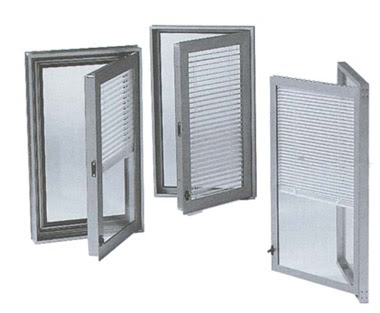Rogers Memorial Hospital–Brown Deer renovates with Wausau’s Behavioral Care Windows


Brown Deer is the first Rogers facility to incorporate biophilia into its design. Biophilia design recognizes the way humans have an emotional connection to nature and natural forms from Earth, and aids in a patient’s healing process. “We know that environment is an important part of getting well. We wanted to bring the outdoors and elements of nature inside as much as possible,” said Jim Kubicek, vice president of operations for Rogers Memorial Hospital–Brown Deer.
Helping achieve this, TWP Architecture addressed both the hospital’s aesthetic renovation needs and performance upgrades to meet current codes and standards. TWP’s principle-in-charge, John Curran, ALA, explained, “Built in the ’80s, the building was not very inviting. It had these narrow, dark-tinted windows cut into the masonry wall that gave it a prison-ish look. We didn’t have a lot of money to work with, but wanted to completely change that first impression. We added an interior living green wall to bring the biophilia concept indoors, and opened up the entry with lots of natural light to give it a bright, welcoming feeling with views to the nicely landscaped grounds.”
Working closely with general contractor VJS Construction Services, glazing contractor Simmons Building Products installed 70 of Wausau’s SEAL 2187-DT interior accessory windows. SEAL is an acronym for sound, energy, air and light, representing the improved energy efficiency and acoustic comfort they offer.
Eric Breidel, Wausau’s sales representative for Wisconsin, also describes the SEAL units as “ideal for psychiatric care and treatment areas. Our ‘DT’ windows are drop-tested for interior human impact up to 2,000 foot-pounds. Two thousand foot-pounds of energy, as imparted by the human impact drop test apparatus, simulates the shoulder impact of a 200-pound person moving at 25 feet per second. This means that the windows support patient safety without requiring detention screens or bars, promoting a home-like, healing atmosphere.”
Curran continued, “Around the perimeter of the building, we were able to maintain the glass, light and views. If you eliminate the glass, you create an unpleasant, institutional feel. Using Wausau’s SEAL units, we didn’t have to replace the existing windows. Instead, we added the SEAL unit and upgraded the patient areas to the necessary safety levels.”
For Rogers Memorial Hospital–Brown Deer, not only do the SEAL windows meet human impact drop-testing per AAMA 501.8-12, they also use an overlap sash design, rather than a flush sash, to make them more resistant to patient tampering and prying. Integral between-glass blinds minimize maintenance, reduce solar heat gain, and offer privacy, without the potential dangers of exposed cords and slats.
Meeting the growing needs of the underserved area, Roger Memorial Hospital–Brown Deer’s renovated facility now houses therapy rooms, a gym, training and educational spaces, admitting and registration areas, a kitchen and cafeterias, plus staff and administration offices. “The updated facility not only provides more comfortable care for a larger number of inpatient children and adults, but also does so with a more appealing aesthetic than the original hospital,” observed Wausau’s Breidel.

